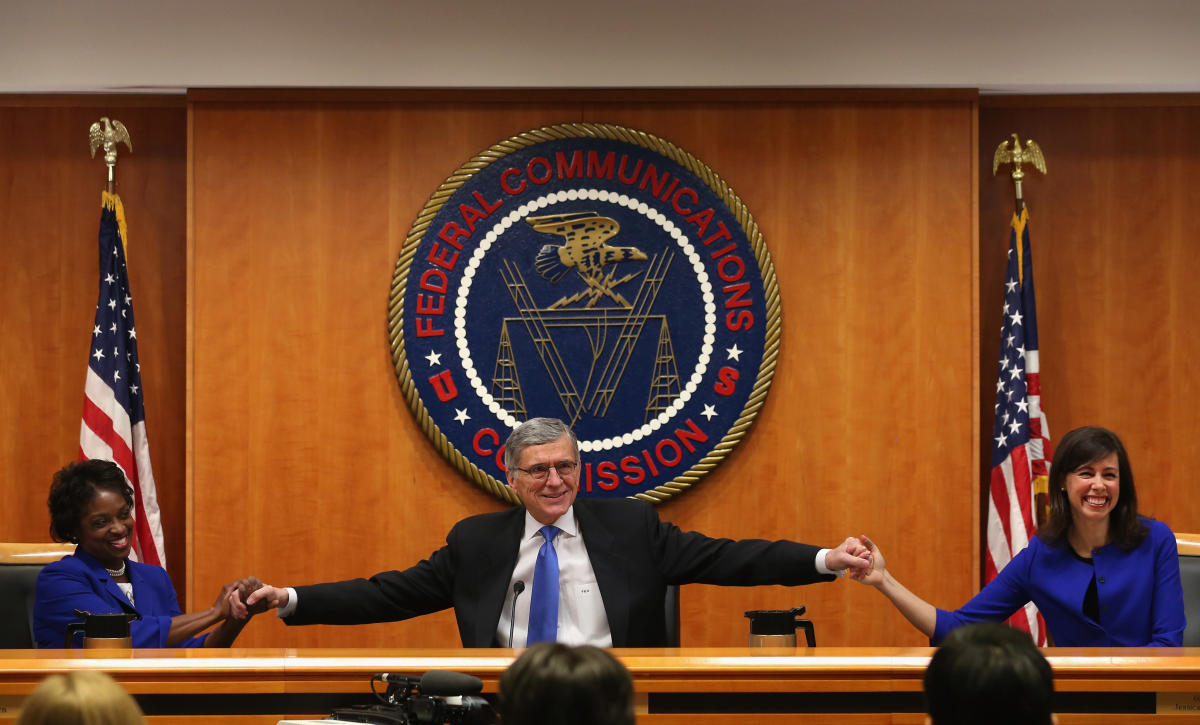US regulators in Washington got another warning about the new limits of their power when an Ohio appeals court struck down federal “net neutrality” rules earlier this month.
The court in Cincinnati said the Federal Communications Commission (FCC) lacked the authority to reinstate these rules — which prohibited broadband providers from slowing down or blocking web traffic — after they had been repealed by President Donald Trump in his first administration.
To justify their decision in Ohio Telecom Association vs. FCC, the judges cited a blockbuster US Supreme Court ruling last year that reined in the power regulators have to intervene in many industries.
That ruling, Loper Bright Enterprises v. US Secretary of Commerce, flipped a 40-year-old precedent known as the “Chevron deference” on its head by saying that courts were no longer required to give agency officials the last word over interpretations of unclear statutes.
“Applying Loper Bright means we can end the FCC’s vacillations,” the court said in its ruling. “We no longer afford deference to the FCC’s reading of the statute,” it added.
The net neutrality case offers the latest example of how the Supreme Court’s landmark 2024 Loper Bright ruling could upend actions taken by all sorts of agencies across Washington, D.C.
“I think it is fair to say that Loper Bright, the effect of it, will be to diminish the power of the federal agencies, and in that sense, enhance the power of the judiciary,” said Randolph May, founder of the Free State Foundation and former chair of the American Bar Association’s administrative law and regulatory practice section.
What he expects instead is a “rebalancing” of regulatory authority.
Some companies have already been citing the Loper Bright ruling as they try to weaken other federal rules in court.
Some of these challenges have resulted in major victories. A federal judge in Texas blocked a controversial Federal Trade Commission ban on noncompete agreements that was set to take effect in early September after the rule was challenged by tax service provider Ryan LLC and the US Chamber of Commerce.
When Dallas US District Judge Ada Brown issued her decision blocking the FTC’s noncompete ban, she cited Loper Bright.
The FCC “net neutrality” rules struck down earlier this month by the Ohio appeals court were passed during the Obama administration.
They prevented internet service providers from blocking content from outlets like YouTube, and thus were supported by tech giants and opposed by telecommunications companies.
Trump repealed the rules and the Biden administration restored them, in 2024, arguing more aggressive oversight of broadband providers would protect consumers.
“This order — issued during the Biden administration — undoes the order issued during the first Trump administration, which undid the order issued during the Obama administration, which undid orders issued during the Bush and Clinton administrations,” the Ohio appeals court said in its opinion.
Susan Dudley, a George Washington University professor and founder of the university’s Regulatory Studies Center, said the Ohio case makes it clear that regulatory power is undergoing a big change.
Previously, she said, courts had upheld “flip flopping” on varying interpretations of federal statutes, as federal agencies came under new administrations.
“On net neutrality,” Dudley said, the court upheld “diametrically opposed interpretations” of the statute that gave rise to the concept.
Regulatory agency power could be headed for additional rebalancing, May said, because cases that involve both an ambiguous statute and a legal concept known as the “major questions doctrine” have yet to be tested under Loper Bright.
The major questions doctrine requires that absent clear authorization from Congress, federal agencies are limited in their authority to make decisions on issues of significant economic or political importance.
If a court applies the major questions doctrine, May said, it’s almost always going to do it in an instance where it is restricting the agency’s authority.
And don’t expect Trump’s FCC to revisit the net neutrality rules, either. His pick to run the agency, Brendan Carr, has advocated for the repeal of those rules in a right-of-center policy proposal known as Project 2025.
Alexis Keenan is a legal reporter for Yahoo Finance. Follow Alexis on X @alexiskweed.
Click here for the latest technology news that will impact the stock market
Read the latest financial and business news from Yahoo Finance
